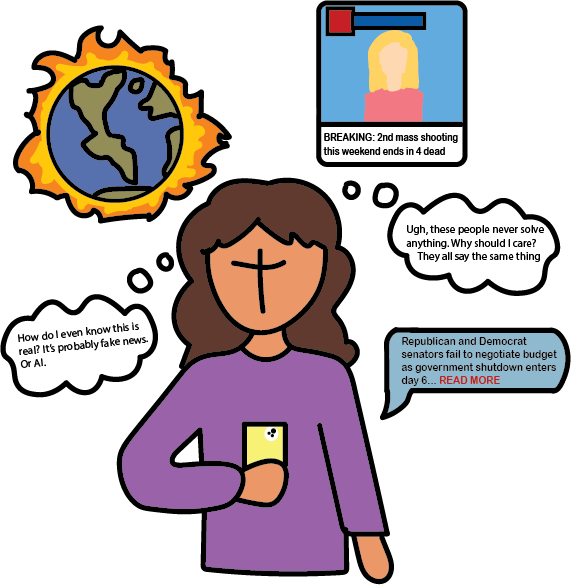Nearly seven million businesses and half of America’s population use TikTok, spending an average of around 60 minutes per day on the app, according to the Pew Research Center. However, on April 24, president Joe Biden signed a bipartisan bill to provide almost $100 billion worth of aid to Ukraine, Israel and Gaza, which also included legislation that could trigger a nationwide ban on TikTok. Enveloping the legislation within a larger security bill increased the chances of it passing. The legislation aims to protect national security, focusing on the concern that the Chinese government could potentially access the data of American TikTok users. TikTok has stated it will challenge the bill on First Amendment grounds in court, as the bill gives TikTok’s parent company ByteDance up to a year to either sell the company or face a ban from U.S. app stores. In practice, however, the bill would ban TikTok in the U.S., as the company has historically refused to consider divestiture. Moreover, TikTok’s latest revenue report revealed that the U.S. only makes up 13% of TikTok’s entire revenue, making the idea of divestiture financially unsound. So, the question boils down to whether or not the U.S. should ban TikTok, and there really isn’t any reason to.
To fully understand this issue, it’s important to know how TikTok and ByteDance operate. While ByteDance was founded by Chinese entrepreneurs in mainland China, it is a privately held global company where three out of the five board members are Americans and the other members are Chinese and Hong Kong citizens based in Singapore with no ties to the Chinese government or any state entities, according to their Forbes profiles. TikTok also operates internationally with no operations in China. Instead, Bytedance created Douyin, a similar platform to TikTok that exclusively operates in China. Under Chinese law, 1% of Douyin is owned by the Chinese government in order to obtain media licenses, which is specific to services in the Chinese market. This has no bearing on ByteDance’s products that do not operate in mainland China, such as TikTok. Moreover, according to TikTok, Douyin employees cannot access user databases, which are scanned and monitored daily. The two apps are completely separate, run by separate teams that service separate markets.
This isn’t the first time America became concerned about TikTok’s threat to national security. Former President Donald Trump pushed to ban the company out of concern for national security in 2020. While ultimately to no avail, Trump’s initiative prompted the company to launch Project Texas. Aimed to build trust between the U.S. government and American users, Project Texas was a $1.5 billion corporate restructuring. The project created U.S. Data Security, a standalone U.S. subsidiary with an independent board of directors who manage access to sensitive user data. According to USDS, all U.S. data previously housed in TikTok’s servers in Virginia and Singapore was transferred to servers in Texas run by U.S. company Oracle and deleted from the original servers. Since October 2022, all new U.S. data has been stored in Oracle’s infrastructure. All employees at USDS are screened per hiring requirements similar to those in the defense industry. Moreover, the Committee on Foreign Investment, which investigates national security risks of foreign investment in the U.S., reviews USDS employees and approves auditors determined by USDS to inspect TikTok’s source code. Even if companies cannot eliminate risk, they can minimize it, and Project Texas was designed to do just that. Establishing different companies that oversee different parts of TikTok’s data security severely reduces the chances that the Chinese government could get access to secure U.S. data.
A glaring problem in the bill is that the legislation only applies to TikTok. Officials have not offered public evidence of the Chinese Communist Party using TikTok for surveillance or propaganda purposes, yet Facebook, for example, has confirmed it had multiple data-sharing partnerships with some of China’s largest electronic companies. According to a letter sent to Mark Zuckerberg by Senators Mark Warner and Marco Rubio, the agreements, which date back to at least 2010, gave Lenovo, Oppo, TCL and Huawei — a telecommunications equipment company American intelligence officials have flagged as a national security threat — access to some user data. Facebook officials said the agreements with Chinese companies allowed the companies to retrieve detailed information on users and their friends, including religious and political leanings, work and education history and relationship status. An internal Meta document showed that nearly 90,000 separate developers in China, over 42,000 developers in Russia and thousands of developers in Iran and North Korea had access to user information. The document also revealed that Facebook knew about a potential way for the developers to use the data to faciliate espionage, yet they continued to send user data.
Even if ByteDance did sell TikTok, another parent company would be unlikely to continue the expensive work done through Project Texas, making U.S. user data ironically less secure. The fact of the matter is that U.S. user data within TikTok is secure. It is a credible and secure platform that benefits communities around the world; most recently, videos on TikTok about the Texas Panhandle wildfires helped bring millions of dollars in aid to the area. The very fact that TikTok is owned by a company with Chinese ties has put it under unfounded scrutiny, revealing the xenophobia behind the U.S. legislation. Even if the new legislation helps in some way to produce stronger privacy practices on TikTok, it will fail to protect users’ online privacy when they use any other tech product. If the U.S. was actually concerned about China and data privacy, it would push legislation that applies to all social media companies, not just TikTok.











